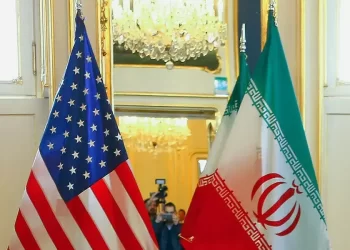ASUNCIÓN, Paraguay (news agencies) — Ahead of her 15th birthday, Diana Zalazar’s body had gotten so big she could no longer squeeze into the dress she bought for her quinceañera to celebrate her passage into womanhood in Paraguay.
Her mother sought help from a doctor, who suspected that growing inside of the 14-year-old Catholic choir girl could be a giant tumor. Next thing Zalazar knew, a gynecologist was wiping down the probe she’d applied to her belly and informing her that she was in her sixth month of pregnancy.
It made no sense to Zalazar, who had recently had sex for the first time without realizing it could make her pregnant.
In Catholic Paraguay, which has the highest rate of teenage pregnancy in South America, many young mothers explained their teen pregnancies to media as the result of growing up in a country where parents avoid the birds and the bees talk at all costs and national sex education is indistinguishable from a hygiene lesson.
“I didn’t decide to become a mother,” Zalazar said. “I didn’t have a chance to choose because I didn’t have the knowledge.”
Over the years that Zalazar, now 39, has gone from sexual ignorance and shame to raising her 23-year-old son and advocating for children’s rights, Paraguay’s lack of sex education has remained unchanged — until now. For the first time, the Ministry of Education has endorsed a national sex ed curriculum. But in a surprising twist, it’s the sexual health educators and feminists who are panicked. Conservative lobbyists are thrilled.
The curriculum, a copy of which was obtained by the news agencies, promotes abstinence, explains sex as “God’s invention for married people,” warns about the inefficacy of condoms and says nothing of sexual orientation or identity.
“We have a very strong Judeo-Christian culture that still prevails, and there’s fierce resistance to anything that goes against our principles,” said Miguel Ortigoza, a key proponent of the curriculum and evangelical pastor from Capitol Ministries, a Washington-based nonprofit that ran Bible study for former President Donald Trump’s Cabinet.
As a new generation of activists campaigning for legal abortion and gay rights scores victories across Latin America, a conservative backlash has gathered in Paraguay. The country already has among the world’s strictest abortion laws — punishable by prison time even in cases of incest or rape, though not when the mother’s life is in danger.
“Laws everywhere now allow girls to kill their babies, but Paraguay is among the remaining few saying no for Jesus’ sake,” said Oscar Avila, manager of an anti-abortion shelter for young mothers in Paraguay’s capital. At a recent morning Mass, girls no older than 15 filled the pews, some heavily pregnant, others with infants on their hips.
Critics explain the outsized power of Paraguay’s right-wing pressure groups as the consequence of a peculiar history. The conservative Colorado party has ruled the country for 76 of the past 80 years — including during a dictatorship openly sympathetic to Adolf Hitler.
“Growing up under the dictatorship, I was told homosexuality is a deviation,” said Simón Cazal, founder of Paraguayan LGBTQ+ rights group SomosGay. “The dictatorship legally ended, but the same political clans kept running the show.”
More recently, the rise of the far right in Latin America has given the governing party’s platform of religion, family and “patria,” or fatherland, newer resonance — emboldening conservative culture warriors with evangelical ties to take their battles to classrooms.
In 2017, Paraguay became the first country to ban school discussions about gender identity, an unwitting trailblazer for European populists and Republican governors. Now its sex ed curriculum has become a national flashpoint.
“The text is very dangerous, it’s an affront to science,” leftist Sen. Esperanza Martínez told a government committee recently convened to debate the curriculum.
Education Minister Luis Fernando Ramirez downplayed the controversy, stressing there was still time to improve the curriculum before enforcing it. “There’s no expenditure of state funds,” he told lawmakers. “Let’s not pass judgement until we do deeper work.”
Authorities assembled teams to revise the curriculum, called “12 Sciences of Sexuality and Affectivity Education,” which it plans to pilot in September across five eastern regions before taking it nationwide. Parents’ rights groups praise the 12 books, one for each grade, as a way of teaching morals and protecting young people.
“It’s a real battle for life, family, the true rights of children and the freedom of parents,” said curriculum author Maria Judith Turriaga. “It’s the reason parents fought for it to be included in public schools.”
The curriculum instructs children to treat others with respect and cultivate healthy relationships.
But in discouraging contraception and enforcing traditional gender norms, it has become a lightning rod for social tensions. Critics say it perpetuates sexist stereotypes: “Men conquer, not seduce,” “girls have smaller and lighter brains,” “boys don’t cry easily,” “girls don’t like taking risks.”









